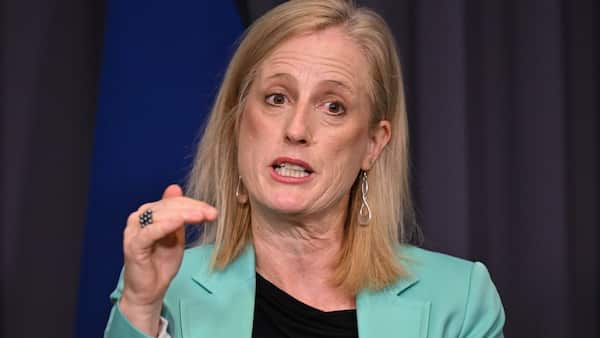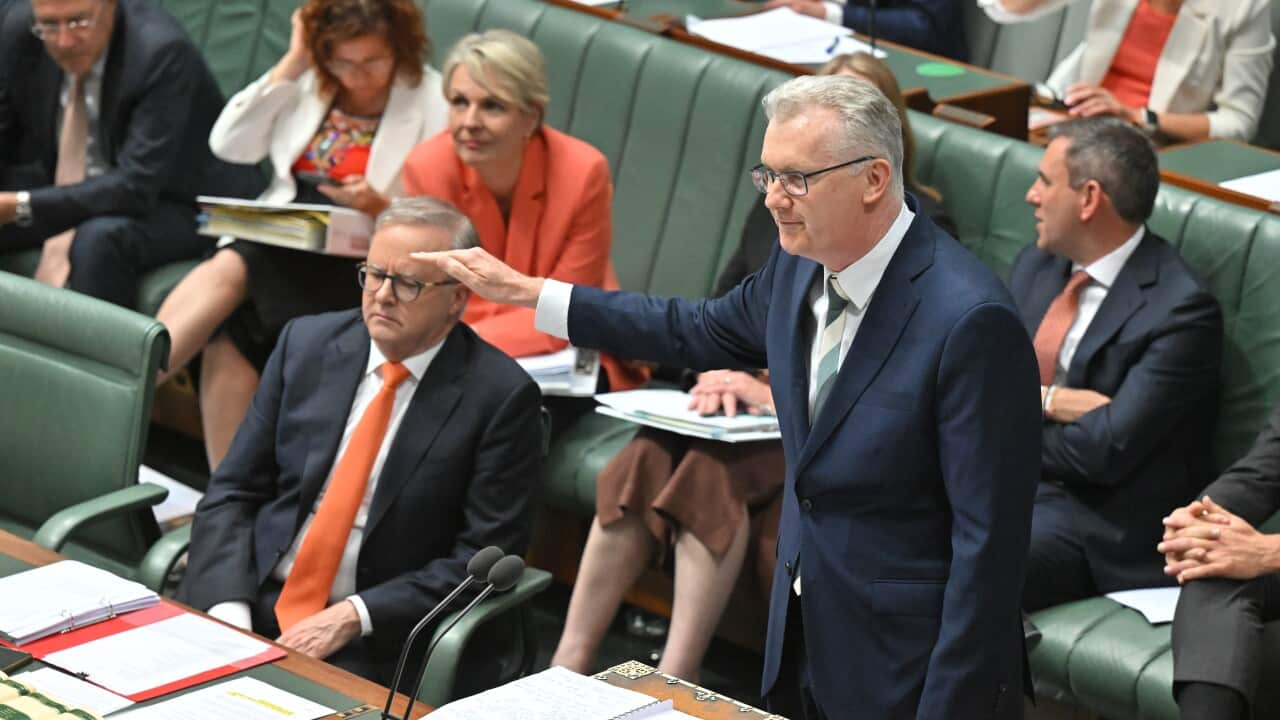A government push to stifle international student numbers has split the tertiary education sector, with one group saying Labor was “replacing one flawed process with another”.
However, one expert has criticised the organisation behind that statement and other parts of the sector have praised the move.
Visa processing will be slowed and limits applied to the number of international students a university can enrol under a direction issued by Home Affairs Minister Tony Burke on Thursday.
Direction 111 will replace the existing ministerial direction 107 and effectively introduces measures that would have been legislated
“Peter Dutton wants to talk tough on migration but has voted to let it rip when it comes to international students,” Burke said.
“This is a counterbalance to his recklessness.”
Opposition education spokesperson Sarah Henderson criticised direction 111, saying “this open-slather approach places no limit on the number of foreign students who can come to Australia” despite her party voting against the legislative cap.
The Opposition’s immigration spokesperson, Dan Tehan, has also criticised the policy.
“Labor always makes a mess in immigration. 18 months ago, they were boasting how many visas they were issuing, now, we have over a million people arrive during a housing and rental crisis. And it’s very hard to see how this is going to make any different.”
Mixed reaction from university sector
While some university sector bodies welcomed the new order, it was quickly criticised by the Group of Eight (Go8) — an organisation representing some of the nation’s leading research-intensive universities.
Group of Eight chief executive Vicki Thomson said the government had replaced “one flawed process with another”.
“We run the risk of confusing the international student market with these constant changes to policy settings. For too many potential students, it makes Australia look too hard and too unwelcoming as a higher education destination,” she said.
“Despite there being no legislative basis for setting international student numbers, our universities have set budgets based on a number provided to them by government several months ago.
“Now, with just days before the end of the year, and with little apparent rationale, this number has shifted again.”
However, the Go8’s claim that the ministerial directive would lead to a “slowdown in processing” has come under fire from the former deputy secretary of the Department of Immigration.
Abul Rizvi, a frequent commentator on immigration policy, has said Go8 universities were just “complaining their student visa applications will now be processed together with regional universities”.
“Contrary to their claims, there is no overall ‘slowdown in processing’ or a de facto cap. It’s just lobby group spin,” Rizvi wrote on X.
Under ministerial direction 107, “lower risk” universities — — were given priority in a bid to weed out dodgy providers and education agents looking to lure students who were unable to support themselves.
Rural universities had criticised the previous direction, saying they lost international students while larger universities in metropolitan areas were benefactors.
Education Minister Jason Clare said the new direction will be fairer for regional and outer metropolitan universities as well as TAFEs.
“It shouldn’t just be the big inner-city unis that benefit from international education,” he said. “TAFEs, regional and suburban unis should benefit too, and this new approach will help us do that.”
Outside of the Group of Eight, other parts of the university sector welcomed the removal of ministerial direction 107, calling it a win for all Australians.
“MD107 has wreaked havoc, stripping billions of dollars from the economy and inflicting incredibly serious financial harm on universities, particularly those in regional and outer suburban areas,” said Universities Australia chief executive Luke Sheehy.
“Internationalisation and international students are critically important to our economy, our society and our universities.
“They never deserved to be positioned as .”
Regional Universities Network CEO Alec Webb said the new directive was “absolutely wonderful news for regional and smaller universities”.
“It’s equally wonderful news for students, who will not now be forced to decide between the university of their choice and preference, versus applying for university simply to get a visa process,” he said.
La Trobe University, located in Melbourne’s northern suburbs, also welcomed the change, with Vice-Chancellor Theo Farrell saying it was a “sensible approach” that addressed the uneven impact on education providers.
Limited impact of migration measures
The revealed current attempts to limit migration were struggling to make an impact.
New arrivals had declined in line with expectations, but migrants were leaving the country at a slower rate than expected.
Net overseas migration is forecast to come in at 340,000 this financial year, 80,000 more than previously predicted.
Treasurer Jim Chalmers could not explain the discrepancy in its projections, saying “people are hanging around for longer … I don’t have a more granular sense like that”.
The budget update forecast net migration to moderate to 225,000 in 2026-2027 and 2027-2028. That’s down from the peak of 536,000, with Australian Bureau of Statistics figures showing a net intake of 446,000 migrants in 2023-2024.
The largest group of migrant arrivals was still temporary students at 207,000 despite the government’s attempts to slow growth in the sector.
Opposition treasury spokesperson Angus Taylor said Labor hasn’t a clue about migration.
“We cannot afford to have two million new Australians over and above organic population growth in just two terms when we’re not getting the housing and infrastructure to support that,” he said.
The Opposition has committed to reducing net migration to 160,000 per year but Taylor was unable to say how they would address the issue of slower departures.
NTEU asks for no job losses
Since late 2023, the Labor government has issued nine changes to the rules about international students, followed by a proposed bill on capping international student numbers.
The bill failed to pass through the parliament in December, as both the Coalition and the Greens opposed the bill.
However, the ongoing debate around international students has sparked concerns about redundancies at universities, which heavily rely on international students as a source of revenue.
In October, the Australian National University announced redundancies, as it faced a deficit of $200 million this year.
In a statement, Dr Alison Barnes, National President of the National Tertiary Education Union, says the federal government must guarantee no job losses as a result of the changes to international student rules.
With additional reporting from Sara Tomevska and Wing Kuang

